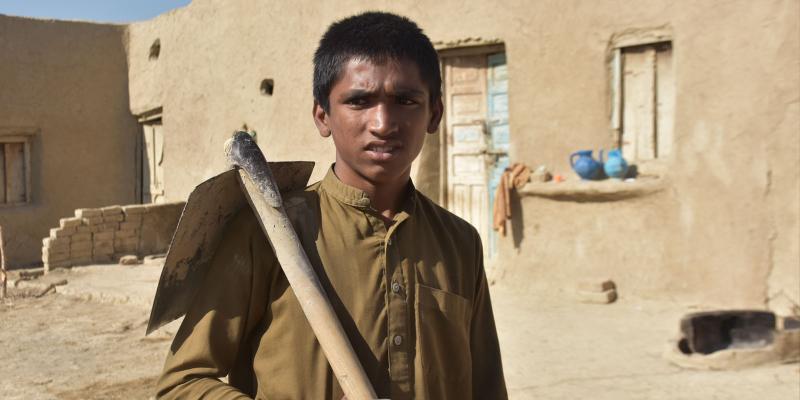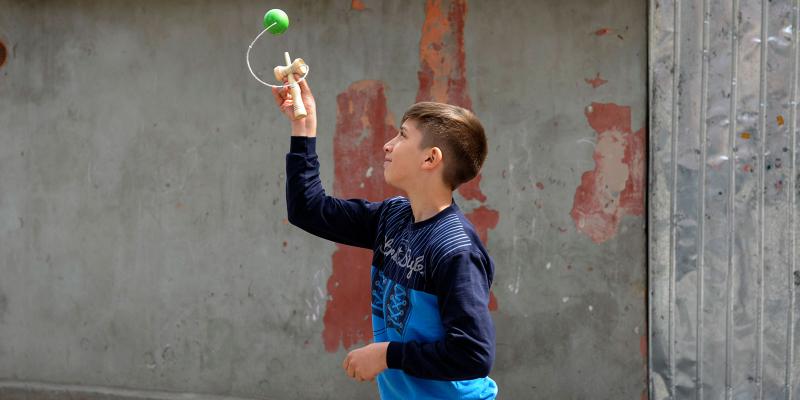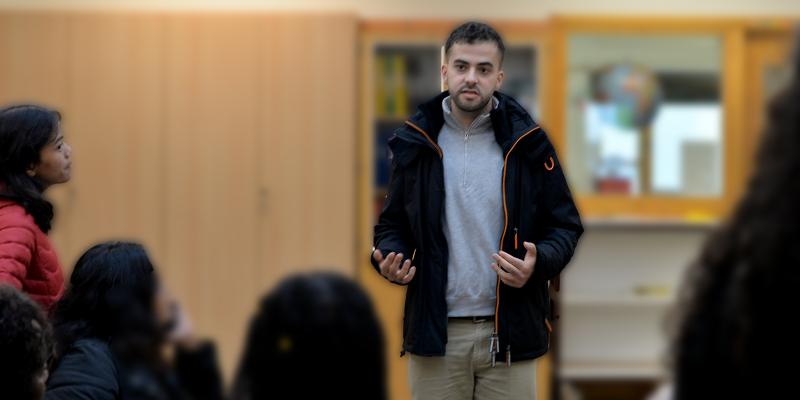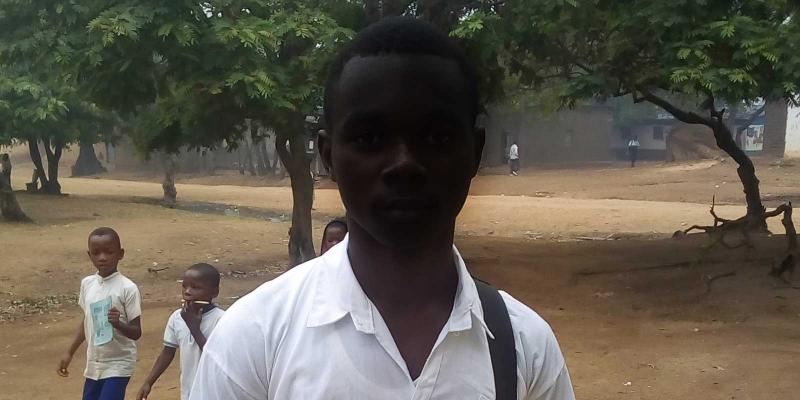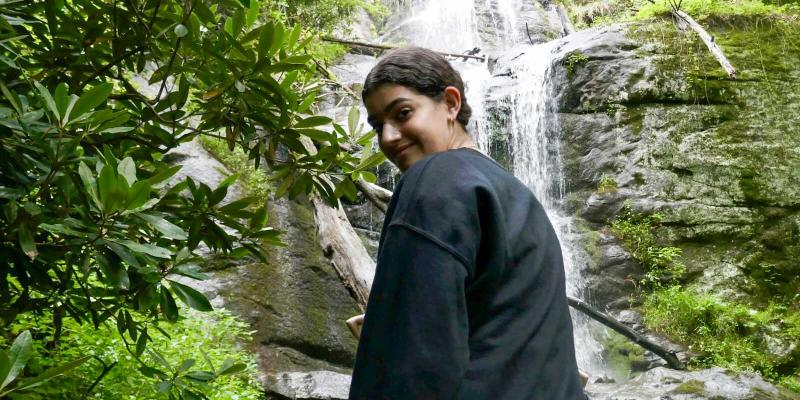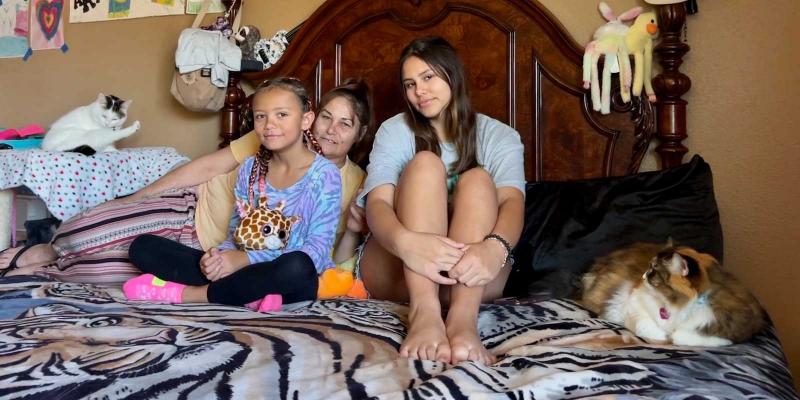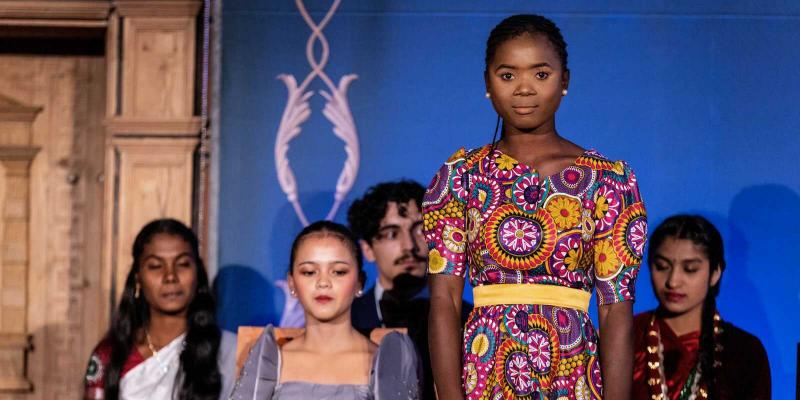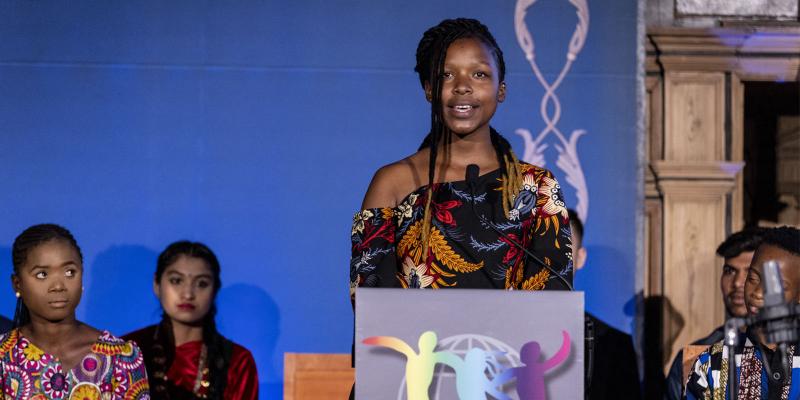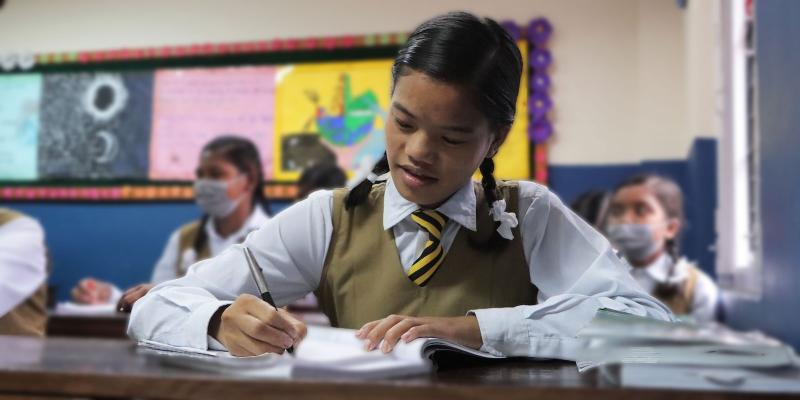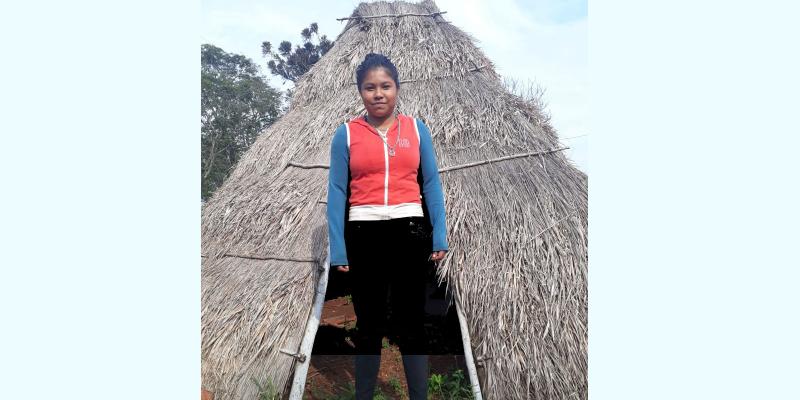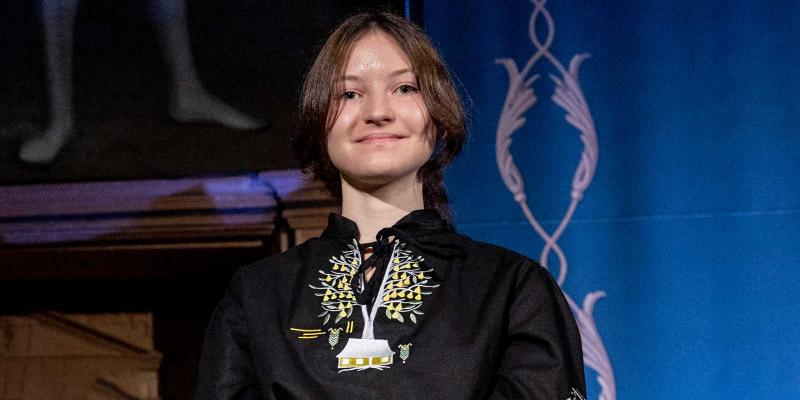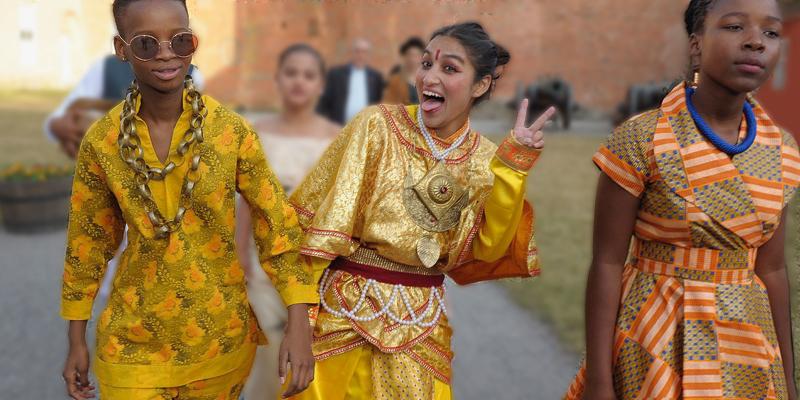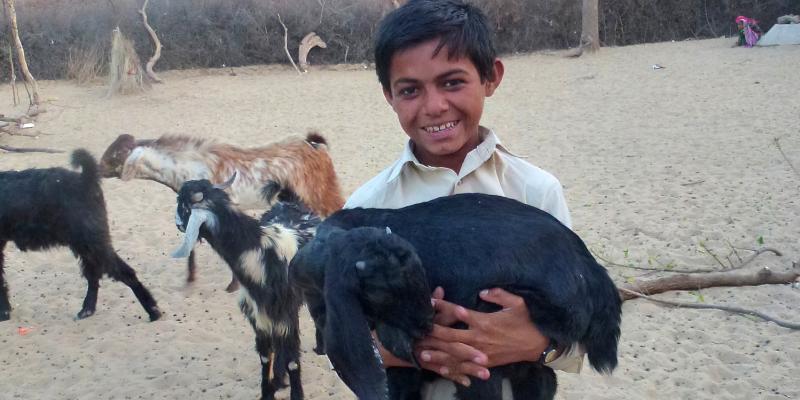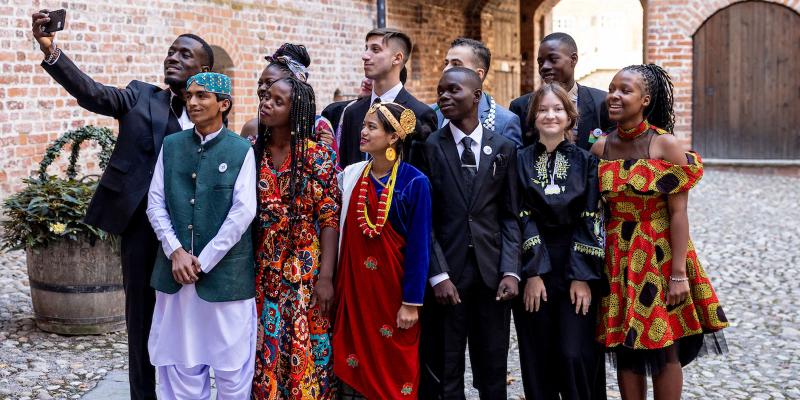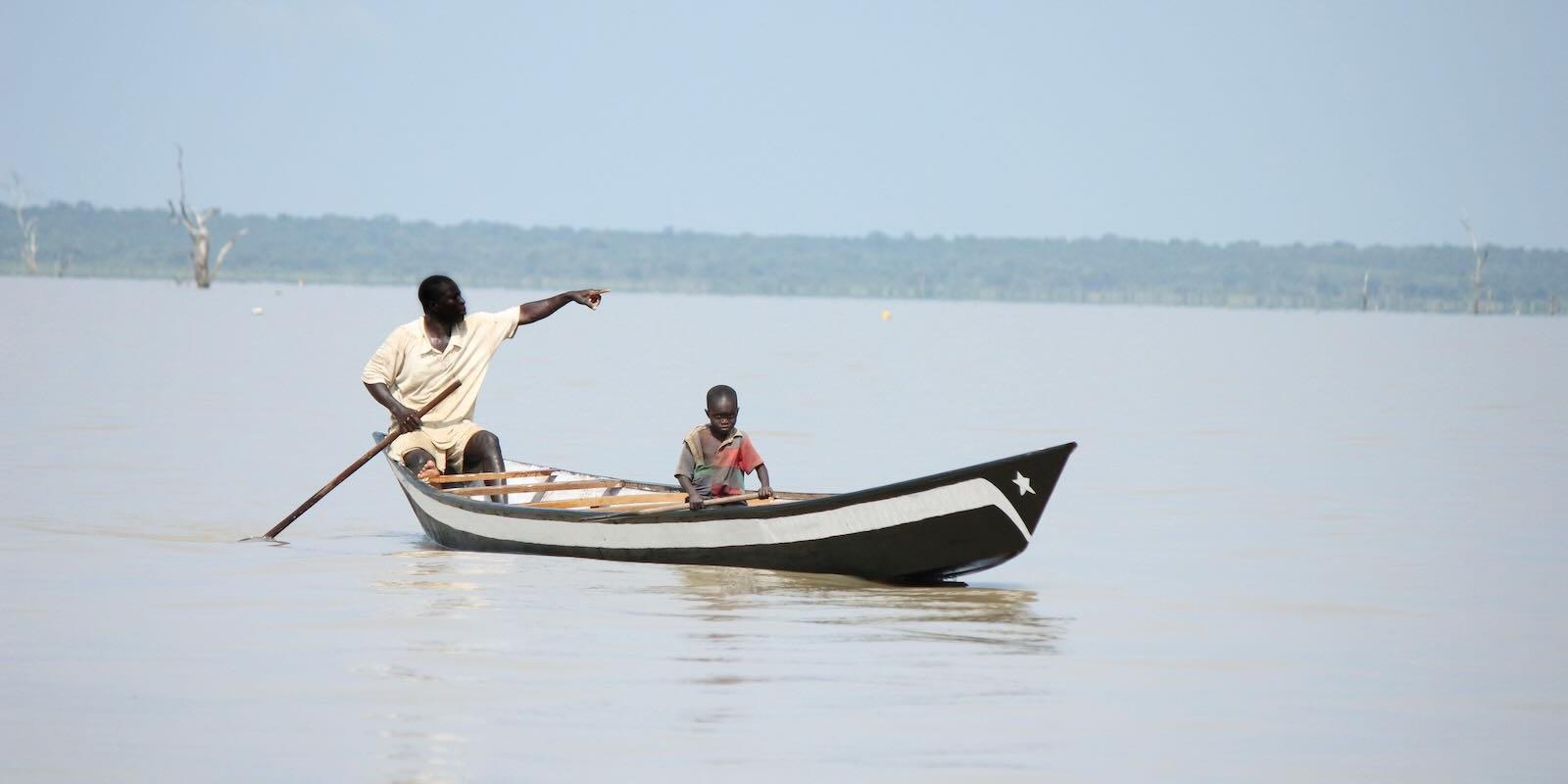
Kwame was just five and couldn’t swim when he had to go out in the canoe with his slave master for the first time to cast nets. Every day and every night he was forced out onto the lake, and he had just one meal and drank lake water. But one day, after three long years, the boat came ...
When Kwame was five years old, a couple came to his home in Winneba in Ghana. They asked if they could take Kwame with them and said he’d be able to go to school. The couple gave Kwame’s parents a little money. When Kwame woke in the couple’s car the next morning, he was in the city of Yeti on the vast Lake Volta.
“We took a boat to an island. When the couple handed me over to a man, he said that I had to go with him out in the canoe and fish. It was really hard at first, and I couldn’t swim,” explains Kwame.
He had been trafficked and was now forced to work every day and night, without any hope for the future.
“But as I grew older I started to dream that one day I’d be rich, and that my family would celebrate my return.”
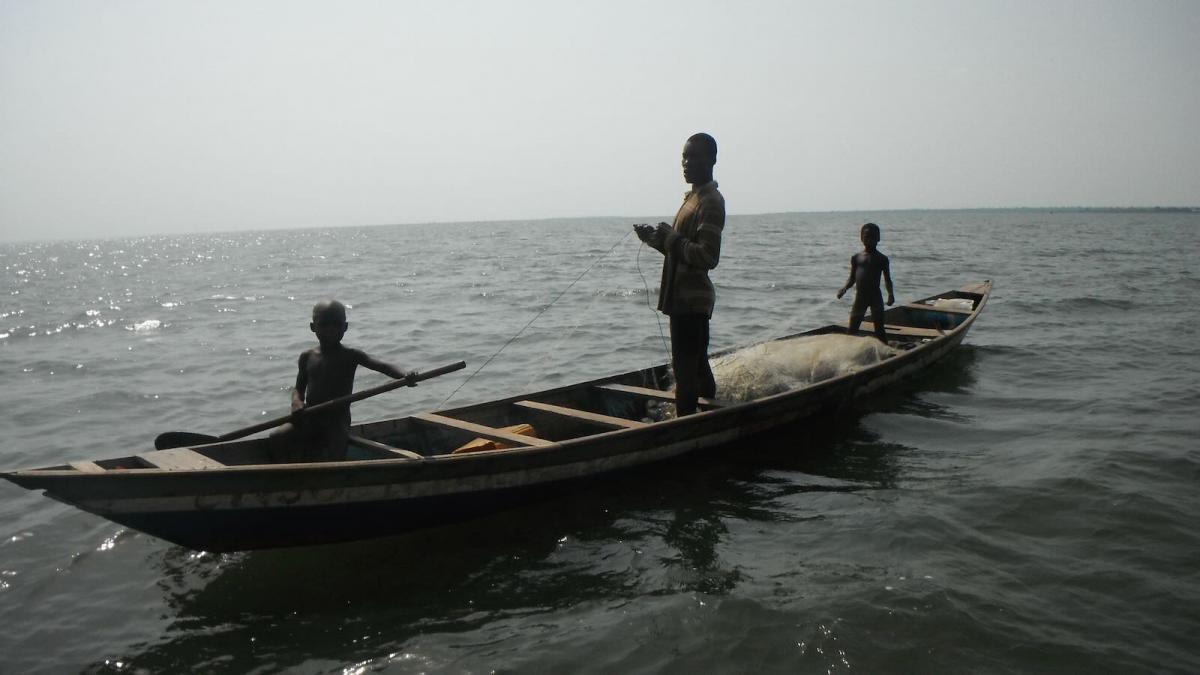
Two hours’ sleep
Every day, at six in the evening, Kwame packed the nets in the boat and set off out onto the lake with his slave master, Brother Abbam.“The moon and stars helped light the way, but we used a torch as well. When the weather was really bad, it was hard to see, and I was frightened.
“First we let down the net that would be taken up early the next morning. Then we cast another net in over and over again and dragged it along behind the canoe for several hours, before turning back at midnight,” explains Kwame. He slept in the canoe for a couple of hours before it was time to go out on the lake again to take up the net.
When he got home in the morning, Kwame usually jumped in the water to wash. He was never able to wash himself or his clothes with soap on the island.
Once he’d carried the fish they’d caught to the slave master’s wife, he helped her smoke it. In the afternoon, Kwame returned to the canoe to empty the water out and get the nets ready for six o’clock, when it was time to go out on the lake again.
Dangerous work
Many children have drowned while being forced to fish on Lake Volta.“Once, when Brother Abbam wanted me to dive down and loosen a net that had got caught, I said I didn’t dare. Then he pushed me down under the water. I thought I was going to die.

“When he got angry, he hit me with the paddle,” says Kwame, showing a scar on his forehead. “And he used to beat me with the steel cable that we mended the nets with, and call me stupid.
“Brother Abbam’s own daughters got three meals a day. They got fish and sauces to go with their kenkey (cornmeal dumplings) and banku (cassava dumplings), and sometimes soft drinks. But in all the years I was with them, I only drank lake water. I got one meal a day, and never anything to go with it.”
The rescue
“I’d heard that there were people who came to fetch children. But Brother Abbam and the other slave masters scared us by saying these people wanted to abduct us, and that we should run and hide.”One day when Kwame was eight years old and standing on the shore, sorting nets, he saw a motorboat approaching.
“I thought it was my mum who had come to get me, so I didn’t run away.”
Safe house
Kwame arrived at the organization Challenging Heights’ safe house for rescued trafficked children.“All I had to do was get up in the morning, make my bed, shower, eat breakfast, go to school and then go to bed in the evening. And no-one beat me or let me starve.
“I do a lot of drawing, but I never paint anything from my time on the lake. It would only remind me of all the terrible things I went through.”
Kwame now had friends, got three meals a day and could watch TV in the safe house. After a year, they started talking about reuniting him with his family. Kwame couldn’t wait, but there was one thing he didn’t want to miss before going home:
I wanted to experience Christmas at the safe house one more time. We practised Christmas carols and dances, and I was one of the dancers. We got Christmas clothes, sweets, biscuits and soft drinks. The Christmas meal was so good, chicken and rice.”
Finally home
It was almost as Kwame had imagined it. He didn’t come home rich, but when his family saw him, everyone cheered and cried.“I thought a lot about my parents when I was on the island and at the safe house, and I recognised them as soon as I saw them. Dad lifted me up in the air!
“I’m happy now. Challenging Heights give me clothes, and they help dad with the cost of my school fees. I’m in seventh grade now.”
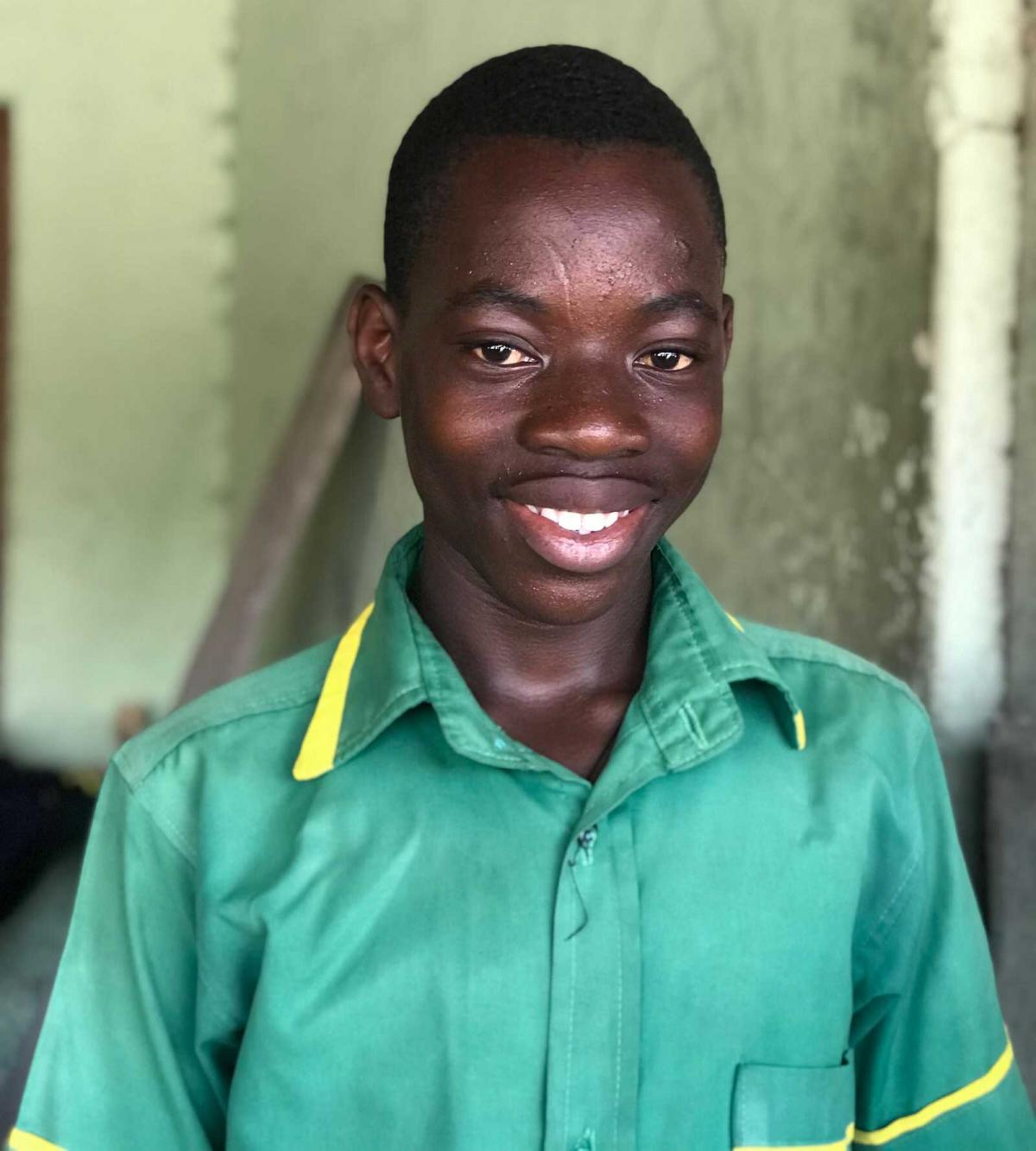
Kwame, 16, Ghana
Kwame represents child workers and children who have been trafficked and forced into modern slavery. Christmas Eve at the safe house.When the slave master pushed me down under the water.
Related stories
Långgatan 13, 647 30, Mariefred, Sweden
Phone: +46-159-129 00 • info@worldschildrensprize.org
© 2020 World’s Children’s Prize Foundation. All rights reserved. WORLD'S CHILDREN'S PRIZE®, the Foundation's logo, WORLD'S CHILDREN'S PRIZE FOR THE RIGHTS OF THE CHILD®, WORLD'S CHILDREN'S PARLIAMENT®, WORLD'S CHILDREN'S OMBUDSMAN®, WORLD'S CHILDREN'S PRESS CONFERENCE® and YOU ME EQUAL RIGHTS are service marks of the Foundation.



